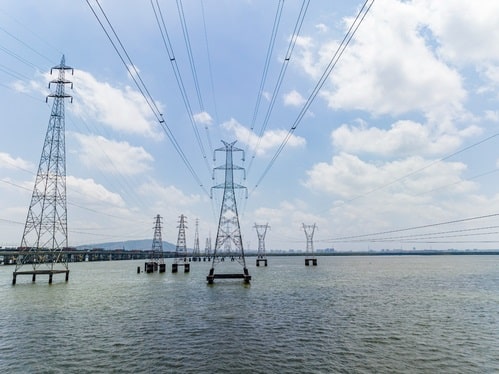STATE: Top authorities announced on Wednesday that the Tripura State Electricity Corporation Limited (TSECL) is yet to receive more than Rs 100 crore as unpaid payment for supplying electricity to Bangladesh.
According to TSECL Managing Director Debasish Sarkar, the payment for the delivery of energy to Bangladesh has been overdue for more than three months, and the neighboring nation needs to clear the funds in less than 35 days. The payment is expected to be received in full.
According to him, Bangladesh now receives 110 MW to 120 MW of electricity per day from the TSECL and receives more electricity from India via the West Bengal side.
The Union Power Ministry has asked the government of Bangladesh to settle the unpaid payments as soon as possible. Sarkar told IANS, “I have personally traveled to Dhaka, met with the relevant Bangladeshi government representatives, and asked them to make the payment, which has been overdue for more than three months.”
In March 2016, Tripura began providing Bangladesh with 100 MW of electricity from the state-owned ONGC Tripura Power Company (OTPC) power plant.
There were occasions when the electricity supply reached 160 MW.
“After the first agreement in 2016, we subsequently renewed the agreement twice to continue the supply of electricity to Bangladesh,” the managing director of TSECL stated.
According to a different Tripura Power Department official, Nepal received 40 MW of electricity from the TSECL in 2020, but the supply was stopped since Nepal failed to contact the Indian authorities again.
According to the official, the NTPC Vidyut Vyapar Nigam (NVVN) is the designated entity responsible for supplying power to Bangladesh from the Tripura power project.
He stated that the 726 MW OTPC gas-based power plant in southern Tripura’s Palatana, 65 km south of Agartala, supplies electricity to the majority of the northeastern states and Bangladesh.
OTPC, a joint venture, established a 726-MW project in Palatana, meeting 35% of the power requirements of seven northeastern states, excluding Sikkim, with its combined cycle power plant.
A prime example of New Delhi and Dhaka’s collaboration is the Rs 10,000 crore Palatana power station, which made it possible for large project machinery and turbines to be transported via Bangladeshi territory to Palatana in southern Tripura.

